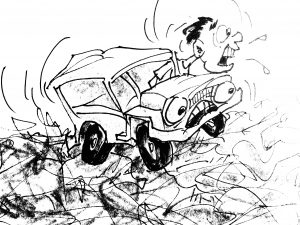Samar Highway, a critical arterial road in the Philippines, has been a major mode of transportation for goods, services, and commuting for decades. However, its deteriorating condition demands more than just regular maintenance. It requires substantial reconstruction funds rather than mere maintenance to address its numerous issues and ensure the safety and efficiency of the road.
Indeed, the current state of Samar Highway is a cause for concern. The highway’s worst condition leads to frequent accidents and disruptions in transportation services. Potholes, cracks, and uneven surfaces not only increase the risks of accidents but also impede the smooth flow of traffic, particularly during the rainy season. Maintenance efforts alone are insufficient to tackle the underlying structural problems that contribute to the deteriorating state of the road; a comprehensive reconstruction is necessary.
The economic implications of reconstructing Samar Highway cannot be ignored. This crucial road serves as a lifeline for local businesses, connecting urban centers to rural areas and facilitating trade activities. However, the devastated condition of the highway hampers the transportation of goods, leading to delays and increased costs for businesses. By providing adequate reconstruction funds, the government can revitalize commercial activities, boost economic growth, and create job opportunities through construction and related industries.
Furthermore, the safety of commuters and the general public cannot be compromised. In its current state, Samar Highway poses significant risks to motorists and pedestrians alike. Regular maintenance efforts, although necessary for basic upkeep, cannot effectively address the broader safety concerns related to the road’s structural integrity.
Reconstruction projects would not only improve the road’s condition and durability but also integrate modern safety features, such as adequate lighting, guardrails, and better signage systems, ensuring the well-being of all road users.
Should reconstruction funds be made available for the highway’s rehabilitation, however, reconstruction must be closely monitored to ensure that corruption by local politicians will not creep in to slash the budget once again and siphon the same into their pockets. Quality workmanship and standard materials must be used. Better still, contractors must come from foreign companies, or companies with excellent, untarnished records, not prone to under-the-table transactions, but are known for high-quality outputs. This way, Samar Highway will not only enhance transportation standards but also contribute to the region’s progress, heralding a brighter future for its residents and all stakeholders involved.




